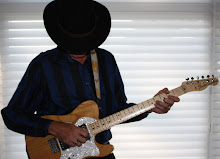Between radio, restaurants, bars, sports venues, shopping malls and our friend's MP3 players we tend to get subjected to the same songs over and over and over and over and ...
I don't know about you, but some of the songs have worn out. And some can't. It's a personal thing, of course, but some songs grab me every time I hear them.
Some songs I tend to enjoy sometimes, and sometimes not so much. It depends on the mood, I guess.
Some songs, well, they've just plain overstayed their welcome. Played too many times. You know, the first million times or so were OK, but after that ... So they've slipped from "love 'em" (or at least "like 'em") to "can't stand 'em". Familiarity breeds, and all that.
So here's a sampling of my three lists:
Grabs Me Every Time
While My Guitar Gently Weeps, The Beatles
Running On Empty, Jackson Browne
Woodstock, CSNY
Black Dog, Led Zeppelin
With or Without You, U2
Depends
Sultans of Swing, Dire Straits
Stairway to Heaven, Led Zeppelin
Smoke on the Water, Deep Purple
Won't Get Fooled Again, The Who
No Time, the Guess Who
No More, Please
American Woman, The Guess Who
Life In The Fast Lane, The Eagles
Light My Fire, The Doors
We Are The Champions, Queen
pretty much everything by April Wine
So, hey all you people voting for - and compiling - the long weekend "best ever" list, do us a favour and mix it up a bit next time.
I don't know about you, but some of the songs have worn out. And some can't. It's a personal thing, of course, but some songs grab me every time I hear them.
Some songs I tend to enjoy sometimes, and sometimes not so much. It depends on the mood, I guess.
Some songs, well, they've just plain overstayed their welcome. Played too many times. You know, the first million times or so were OK, but after that ... So they've slipped from "love 'em" (or at least "like 'em") to "can't stand 'em". Familiarity breeds, and all that.
So here's a sampling of my three lists:
Grabs Me Every Time
While My Guitar Gently Weeps, The Beatles
Running On Empty, Jackson Browne
Woodstock, CSNY
Black Dog, Led Zeppelin
With or Without You, U2
Depends
Sultans of Swing, Dire Straits
Stairway to Heaven, Led Zeppelin
Smoke on the Water, Deep Purple
Won't Get Fooled Again, The Who
No Time, the Guess Who
No More, Please
American Woman, The Guess Who
Life In The Fast Lane, The Eagles
Light My Fire, The Doors
We Are The Champions, Queen
pretty much everything by April Wine
So, hey all you people voting for - and compiling - the long weekend "best ever" list, do us a favour and mix it up a bit next time.
